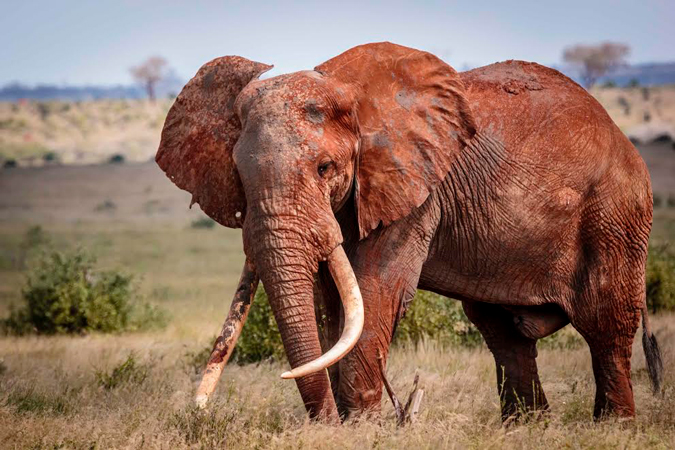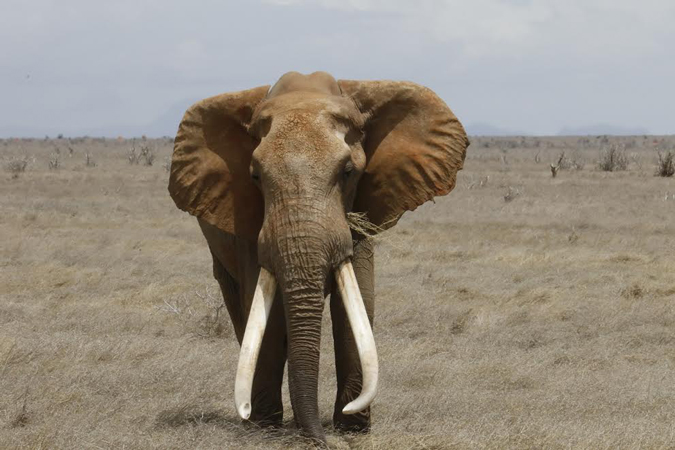Ivory poaching continues to threaten elephant populations throughout the continent with recent census data indicating as few as 380,000 may be left in all of Africa. Poaching also threatens the last-remaining giant (tusker) elephants. Written by: Bradd Johnston for The Askari Project
The elephants of Tsavo are known around the world for their distinctive red colouring and this region is also home to some of the last great tuskers of Africa.

Tsavo has always been a special place for elephants and this vast expanse is currently home to Kenya’s largest elephant population numbering around 14,000.
The Askari Project is a not-for-profit organization specifically set up to raise funding and support for The Tsavo Trust a local Kenyan organization that works in conjunction with the Kenya Wildlife Service to monitor and protect the elephants in Tsavo with a specific emphasis on their signature program – The Big Tusker Project.

Tusker is the term used to describe bull elephants that have tusks that each weigh in excess of 45 kilograms (100 pounds).
The immense size of their tusks and the profits they bring have meant that tuskers have been relentlessly targeted by elephant hunters and poachers.
Tuskers are now incredibly rare with possibly as few as 20-30 left on the entire African continent. The greater Tsavo ecosystem containing Tsavo East, Tsavo West and Chyulu Hills National Parks is home to possibly the largest population of tuskers left in all of Africa.
The Askari Project fundraising
As part of their fundraising initiatives to help protect the tuskers of Tsavo, The Askari Project is running two exciting adventure tours in Africa in 2017.
The first being a nine-day Kilimanjaro climb (running from 31 August to 8 September) for elephant conservation which will attempt to summit Africa’s highest peak on the full moon in September. This trek up the Rongai route will be led by an expert mountaineer guide and Africa Geographic contributor Sarah Kingdom. Not only will participants achieve a personal milestone in reaching the summit but be climbing with a group of like-minded individuals wanting to raise vital funding for elephant conservation.
The second tour run with the help of RAW Africa Ecotours offers an incredible opportunity to come on safari to the elephant hotspots of Amboseli & Tsavo in Kenya. This tour will offer a rare and unique behind-the-scenes look at the conservation work of The Tsavo Trust, meet some of the hard-working staff and accompany them on the search for some of the magnificent and iconic elephants they monitor in the region.
This 10-day tour from 10 to 19 September 2017 offers some fantastic safari highlights but also contributes funding directly to the conservation work of The Tsavo Trust. The group size for this safari experience is restricted to just six lucky people.
Also read: Time with super-tuskers
To comment on this story: Login (or sign up) to our app here - it's a troll-free safe place 🙂.![]()








